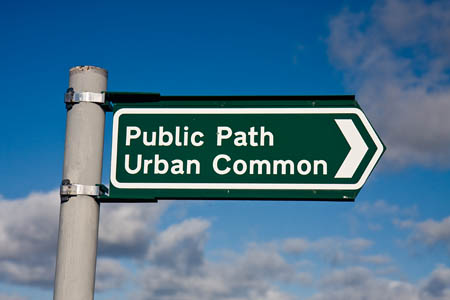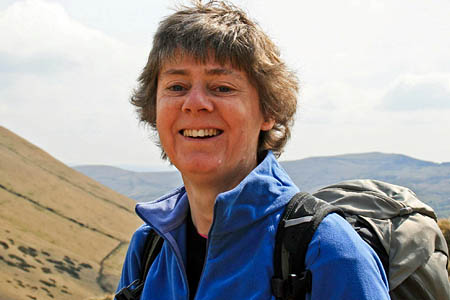Britain’s ancient commons are in danger from surreptitious ‘filching’ by companies and individuals, a campaign group says.
The Open Spaces Society will today outline its plans to halt the loss of common land by encroachments that include garden extensions and car parks.
The society’s general secretary Kate Ashbrook is speaking today at the annual meeting of the Association of Commons Registration Authorities in Birmingham.
She said: “Common land is at risk from being eaten away by encroachment.
“Too often adjoining property owners think that they can extend their gardens or chuck their rubbish on to the common.
“They plant trees or move out their garden fence, hoping no one will notice. In many cases, the development is more serious: we have examples of a builder’s yard, a Christmas tree plantation, and car parks on common land for instance.
“Such works are only lawful if they have the consent of the Secretary of State for Environment, Food and Rural Affairs in England and the Environment and Sustainable Minister in Wales.
“Common land is hugely important for its history, wildlife and opportunities for quiet recreation. It is the last vestige of unenclosed land surviving from the inclosure movement of the 17th and 18th centuries.
“We should treasure it, not allow it to be filched from us.
“The Open Spaces Society wants to see local authorities taking tougher action against those who try to steal our commons.
“We have long argued, without success, that local authorities should have a legal duty to protect commons from encroachment. At present they have a power, along with owners, commoners and the public under section 41 of the Commons Act 2006.
“In the absence of such a duty there are still actions to take.”
- Ms Ashbrook detailed five points which she said would help protect common land.
- County and unitary authorities to appoint a Commons Enforcement Officer who will be responsible for taking action against unlawful works or encroachments on common land
- Where there is two-tier government, agreement between authorities as to which will be responsible – it is too easy to pass the buck
- Planning authorities should check if land is registered as a common before they consider the application and, if they do give permission, inform the applicant of his responsibility to obtain common-land consent before proceeding
- Communities regularly to check the boundaries of their local common, including reviving the tradition of beating the bounds on Rogation Sunday for instance, and reporting any encroachments to the authority
- Publicity for encroachments: naming and shaming culprits.
Ms Ashbrook detailed successful instances of authorities’ work on commons.
She said: “There are many examples of good practice among local authorities, and we should publicise these too.
“Last year Essex County Council, with Rayne Parish Council, helped secure the removal of an unlawful picket fence on Braintree Green Common.
“The enforcement officer with the Brecon Beacons National Park Authority helped ensure that encroachment of a domestic curtilage on the tiny Lower Common at Gilwern in Monmouthshire was removed. It would be good if she could be equally effective in removing the four-mile-long unauthorised fence across open country in the Brecon Beacons National Park.
“West Sussex County Council has been investigating unlawful tracks on Horsebridge Common near Steyning. The legal officer has advised all the planning authorities in West Sussex of the need to check whether applications affect common land and has offered them an up-to-date GIS [Geographic Information System] layer for their maps.
“Hart District Council in Hampshire has restored an unlawful garden to Odiham Common, with removal of fencing, and is pursuing another case. Guildford Borough Council is investigating hedges and gardens on St Catherine’s Common.
“But there are places where encroachments remain unresolved, such as Gembling Common, Foston on the Wolds in East Yorkshire.
“If our five-point plan were adopted, our unique commons would be better protected,” she added.
The Open Spaces Society was founded in 1865 and is Britain’s oldest national conservation body.
The Association of Commons Registration Authorities supports commons registration officers and staff whose work includes all aspects of common land and town and village greens.
ACRA aims to promote good practice and provide effective communication to keep members informed of matters both political and technical which affect the registration of common land and town and village green.

